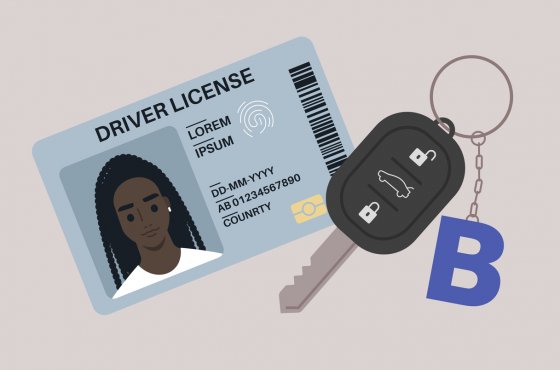Shocking Exposure: Authoritative Autism Researcher Collaborated with the Nazis
Austrian pediatrician Hans Asperger, who lived and worked in Vienna in the first half of the 20th century, actively collaborated with the Nazis and participated in their euthanasia program, according to a study by Herwig Czech, historian of medicine at the Vienna Medical University. Scientific work published in the journal Molecular Autism.
According to "Currently,“, Austrian psychiatrist and pediatrician Hans Asperger is one of the most authoritative researchers of autism. As early as 1944, he described children who were characterized by a lack of nonverbal communication abilities, limited empathy towards peers, and physical awkwardness. The term "Asperger's syndrome" only appeared in the 90s. This is one of the most common diagnoses of autism spectrum disorder.
During the Nazi regime, Asperger, according to historian Herwig Cech, publicly defended the legality of the policy of “racial hygiene.” Including forced sterilization, which was subjected to people with mental and physical disabilities. In some cases, he actively collaborated with the Nazi program of euthanasia of "defective" children.
“Asperger was able to adapt to the Nazi regime and was rewarded for his loyalty with promotion,” the study says.
"Politically flawless"
The author of the study found that Asperger did not directly join Adolf Hitler's NSDAP, but was a member of several organizations associated with the Nazis - for example, he was a candidate for the National Socialist League of Doctors.
According to Herwig Cech, he studied a huge number of publications of that time, as well as previously unexplored archival documents, including personal records of doctors and patient histories.
One such document is a Nazi profile drawn up in November 1940 on Hans Asperger. It says that the scientist is “politically impeccable” and “agrees with National Socialist ideas on issues of racial laws and sterilization.”
“In the new Germany, we physicians have taken on many new responsibilities in addition to our old ones. Added to the task of helping the individual patient is the great mission of improving the health of the people, which is much more important than the well-being of the individual. There is no need to talk in detail about the conscientious work being done in this direction - about positive, supportive measures. But we all know that restrictive measures are also necessary.
Just as doctors often make painful incisions in the course of treating a particular patient, we too will have to make incisions on the body of the people, out of a sense of great responsibility: we need to make sure that patients who can pass on their diseases to new generations to the detriment of the individual and the whole nation, stop passing on theirs. unhealthy hereditary material,” Asperger wrote in one of his publications in 1939 (author’s terminology – NV).
Eugenics and euthanasia
Studying the documents, the historian came to the conclusion that Asperger's attitude towards the practice of forced sterilization was ambiguous. In some of his medical reports, he emphasized the “hereditary” nature of the abnormalities, which directly led to the sterilization of the patient, although these references could have been avoided without risk to one’s career. But there is at least one case where Asperger's diagnosis saved a 14-year-old boy from sterilization.
A separate chapter of the study is devoted to Asperger's relationship with the Am Spiegelgrund clinic in Vienna, where about 800 children were killed during the Nazi regime. Those who did not meet the criteria of “hereditary value” and “racial purity” were placed there. The institution was headed by Asperger's student and former subordinate Erwin Ekelius.
In June 1941, Asperger examined a girl who was not yet three years old. He concluded that the child, due to the possible consequences of encephalitis, would be “an intolerable burden for the mother”, and considered it “absolutely necessary for the permanent placement” of the patient in Am Spiegelgrund. On July 1, the girl was hospitalized, and on September 2 she died of “pneumonia” - this was the diagnosis given to patients who were killed with barbiturates.
In November 1941, Asperger recommended that another girl, also probably suffering from the effects of encephalitis, be sent to Am Spiegelgrund. The five-year-old child stayed there from March to September 1942, after which he also died of “pneumonia.”
The historian notes that earlier records about the children who became patients of these clinics were considered lost during the war. The author of the article managed to find about a thousand case histories; he assumes that there could actually be more records, and those that were preserved were probably corrected or erased.
The historian unequivocally answers the question of whether Asperger knew that he was condemning his patients to death, recommending that they be sent to Am Spiegelgrund. He is convinced that, despite the secrecy of the euthanasia program, the doctor apparently had such information.
“It seems incredible that Asperger, a long-time colleague of [clinical director] Erwin Jekelius and a well-informed member of the professional community, was unaware of the work of Am Spiegelgrund,” the historian concludes.
Studying the diagnoses made by Asperger 40 to future patients Am Spiegelgrund (where there was no direct recommendation to place children in this clinic), the historian came to the conclusion that the doctor often made even more stringent diagnoses than his colleagues at the clinic, where euthanasia was practiced. In most cases, he insisted on removing the problem child from the family and placing him in a closed-type medical institution.
Another episode in Asperger’s life is connected with the euthanasia program - his participation in the commission at the psychiatric clinic in the city of Gugging near Vienna. The commission had to classify 200 children and determine the group of “unteachable”. This group included 35 children, all of whom died in Am Spiegelgrund.
Risky position
In part, studies based on documents obtained by Herwig Cech have previously been published and have been the subject of criticism. Steve Silberman, author of NeuroTribes, the best-selling book on the history of autism (Russian translation published on the site aspergers.ru).
“As a clinician working with children with many types of congenital conditions, Asperger was in a particularly precarious position; especially since the man who originally assigned him to work at the children's clinic, infectious disease specialist Franz Hamburger, became one of the most prominent Nazis in Austria. Hamburger portrayed the Fuhrer as the greatest doctor, opening “new roads to health for 80 million of his fellow tribesmen in Germany,” Silberman wrote.
Czech in his study notes that all problems with the Nazis are known only from the words of Asperger himself.
Hans Asperger died in 1980. After the defeat of the Nazi regime, he returned to work at the university clinic, and his activities during the occupation of Austria were not discussed for a long time - like the careers of thousands of other Austrians, thanks to the “wall of silence” effect. Asperger first publicly referred to his experiences under the Nazis in 1977.
Read also on ForumDaily:
22 medical services that are available for free with Medicare
What are all the immigrants silently silent about
Personal experience: how and who is treated in America
How to avoid becoming a victim of fraudsters when making insurance
Personal experience: how Americans are different from us
Subscribe to ForumDaily on Google NewsDo you want more important and interesting news about life in the USA and immigration to America? — support us donate! Also subscribe to our page Facebook. Select the “Priority in display” option and read us first. Also, don't forget to subscribe to our РєР ° РЅР ° Р »РІ Telegram and Instagram- there is a lot of interesting things there. And join thousands of readers ForumDaily New York — there you will find a lot of interesting and positive information about life in the metropolis.











